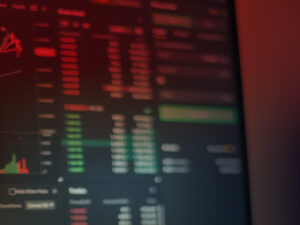Introduction
The International Derivatives Exchange (IDX) conference is normally held in London every June. This year, due to the circumstances of the Covid-19 pandemic, it was held as a series of webinars between June 23-25. In this article, we’ll give a summary of some of the key topics discussed, particularly from the perspective of Sinara and our work building and supporting critical systems for our clients who participate in derivatives markets.
The response of the markets to Covid-19
Inevitably, much of the discussion was focused on the response by the markets to the Covid-19 crisis and how it coped in general, with many comparisons being made to the 2008/2009 financial crisis. The consensus was that most market infrastructure managed to cope but had to handle huge market volumes, heavy volatility, and capital flight. This put intense stress on many systems and operations teams. At Sinara, we certainly worked hard to support all the trading systems we have installed around the world, and to make sure they continued to perform smoothly. Firms are looking to learn lessons from the response and invest in resilience so they are able to deal with future market turbulence.
The need for digitisation
For those parts of commodities trading workflows that are still paper-based, or require error-prone manual operations, the crisis has provided a strong impetus to speed up the shift to digitisation and increase automation. It was pointed out that many of the advancements we have seen in the B2C financial world are yet to be fully realised in typical B2B workflows. This provides great opportunities for trading firms to deliver both cost-savings and new types of products. In commodities trading, there are many areas, particularly when it comes to the physical market, where participants are becoming more receptive to new, digital, ways of working. This is borne out by conversations we have been having with our clients at Sinara around developing systems to track the provenance of commodity material around the world. For clearing houses, there is an opportunity to address markets that are still very bilateral in terms of transaction settlement.
Position & margin monitoring
Regulators will be continuing to look to clearing members and clearing houses to make sure they are properly managing their trading positions, perhaps by placing maximum position limits for some products, or preventing too much position concentration. Trading firms will need to build scalable, real-time systems, that can monitor positions, take into account live market prices, and alert operations staff if they need to take action. Another effect seen throughout the crisis has been increased levels of margin requirements, making it essential to have better understanding of margin moves, be able to make predictions of margin requirements, and get required collateral to the CCP in time.
Back office technology
The extreme operating conditions posed by the crisis was in many ways the ultimate stress test for financial firms as a whole, and certainly for many IT systems across the trade lifecycle. It was agreed that making the right platform choices, overinvesting in scale, robustness and resilience, and ensuring systems are well-managed and supported (whether by a reputable vendor with a strong relationship, or in house), continue to be success factors. While there has been much investment in front-office systems, with incentives such as addressing latency, there is a need to look again at many back-office systems that contain a lot of legacy technology. For example, post-trade processing, in many places, took much longer, and is an area ripe for new investment.
Stress testing
The importance of regular stress testing came up again and again, with firms having to make sure they understand how their systems might operate under different conditions, and identify weak points early. The negative oil prices seen during the crisis and increased levels of settlement issues, overnight volatility, extreme moves at the start of day, trade give-ups and breaks were all examples of this. At Sinara, we continue to make this kind of testing a key part of our software delivery approach, making sure that the right amount of time is devoted to making sure systems can stay running under pressure. Making sure the ‘roof is fixed while the sun still shines’ will be more important than ever.
Retail investors
Many brokers and exchanges saw a sudden and massive increase in retail investor participation, possibly due to the many people at home and looking for ways to make additional income. This is certainly borne out by the experiences of Sinara’s clients as well. This provides an opportunity for these firms to think about how they can retain these investors, and grow this market. New types of web-based or mobile applications will certainly be part of the mix.
Remote working
As with many other industries, most financial businesses switched almost entirely to working from home during the crisis. Investments in technology aside, it was pointed out that one of the reasons for the success of this approach is the strong set of working relationships already established between colleagues, which allowed the transition to remote working to go smoothly. We at Sinara continue to recognise the importance of taking the time to get to know our customers, understand their ways of working, and develop a collaborative approach to software development and support. This has paid off over the last few months, in which we have been able to continue all our project work, even ‘on-site’ projects where Sinara staff are directly embedded into client project teams.
Summary
While the financial markets have coped generally well with the crisis, there are many opportunities for improving best practices, replacing legacy systems, building new technology to take advantage of investment trends, and doubling down on resilience, scalability and stress-testing. We at Sinara look forward to continuing our work for our clients in all these areas over the coming year.



